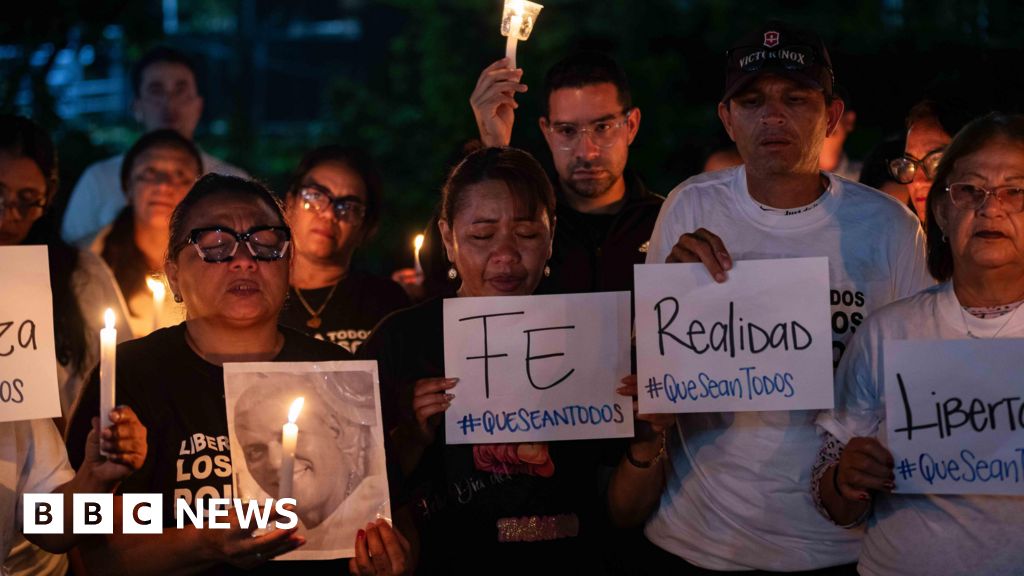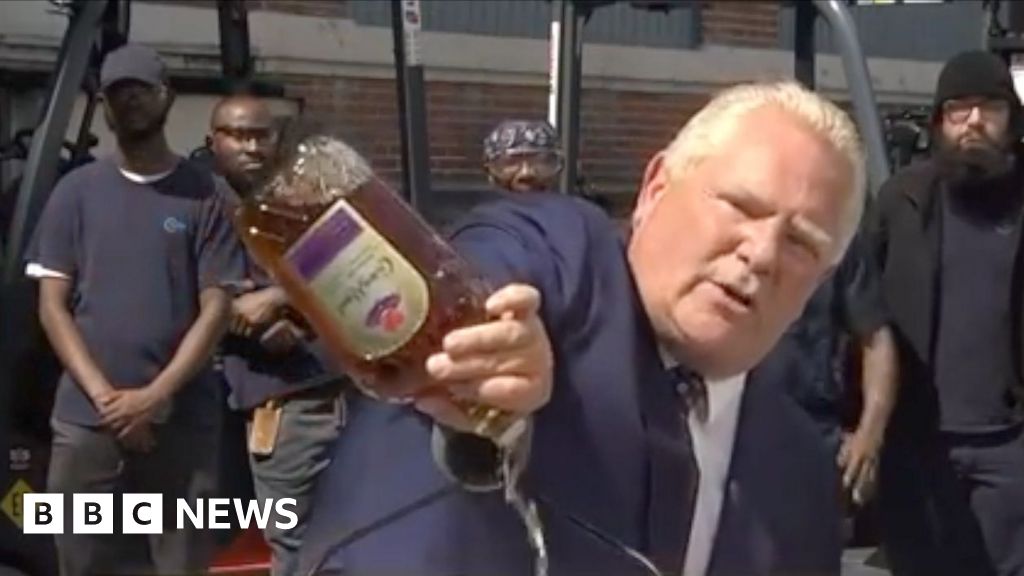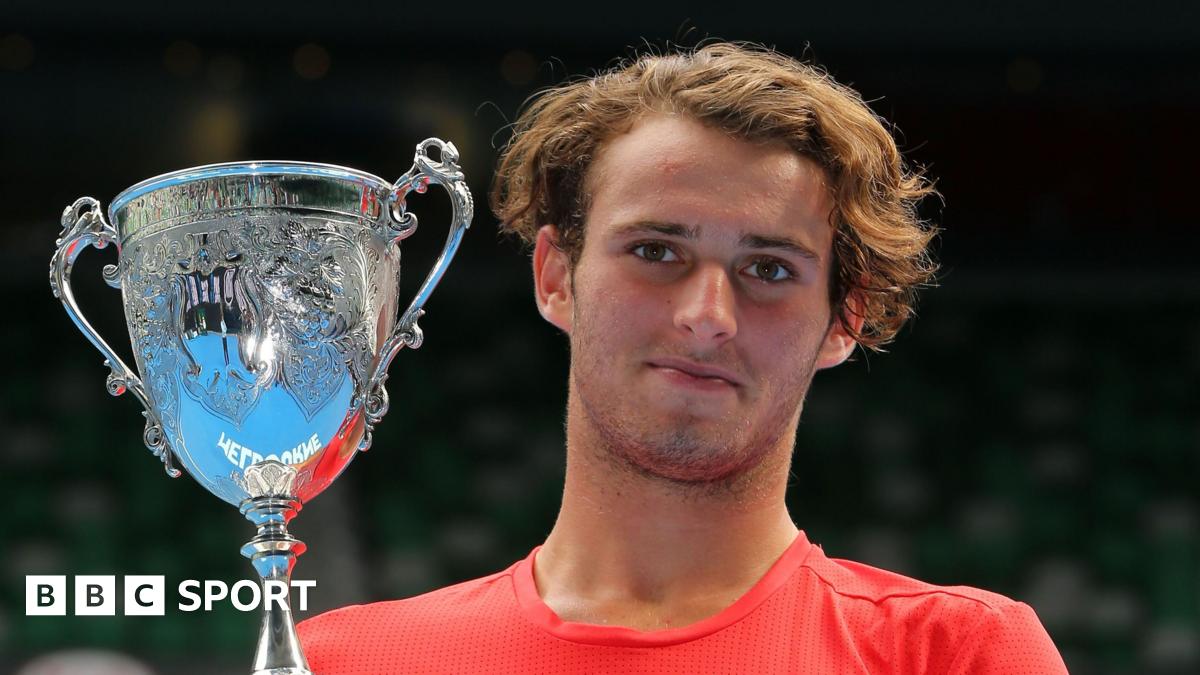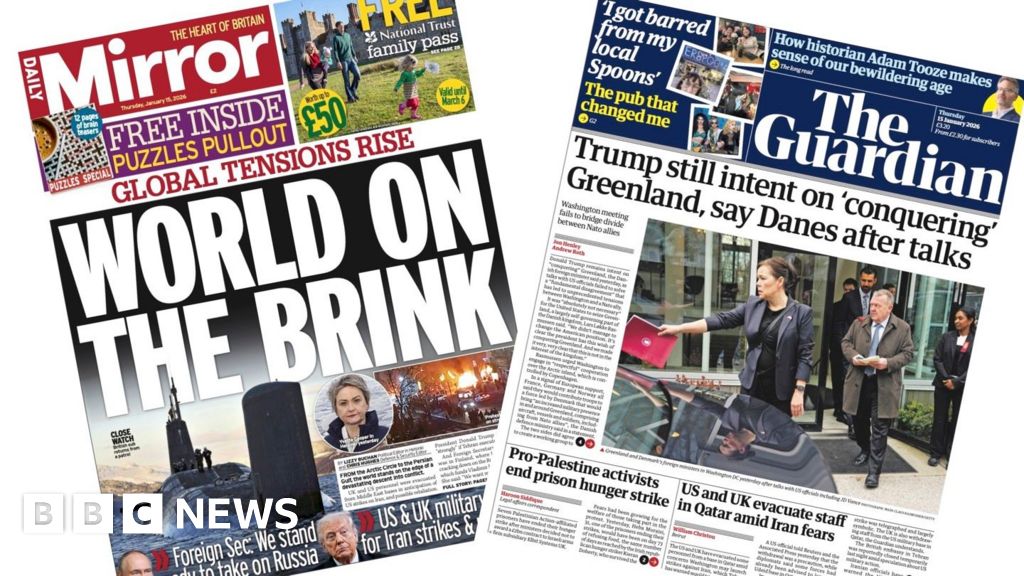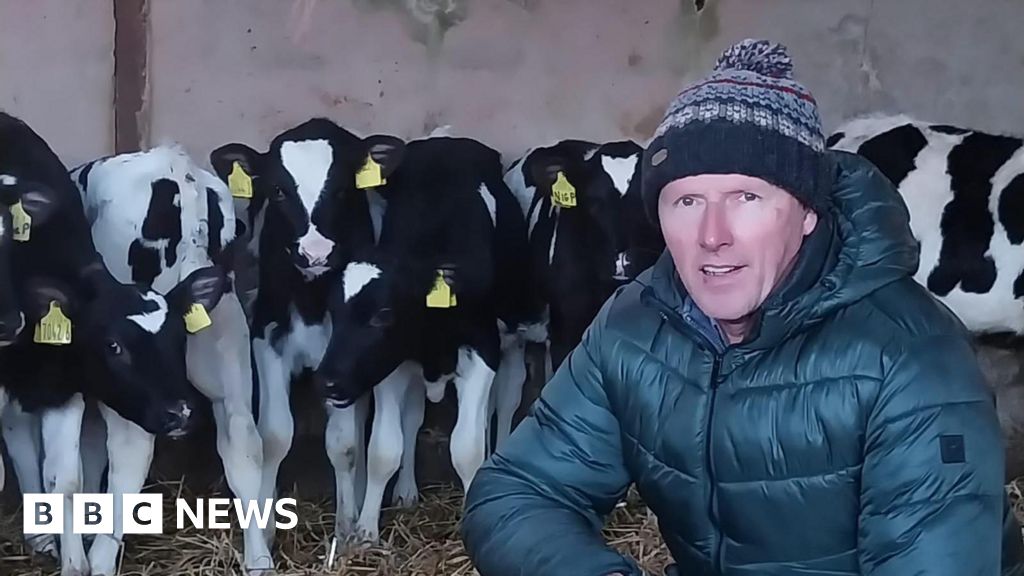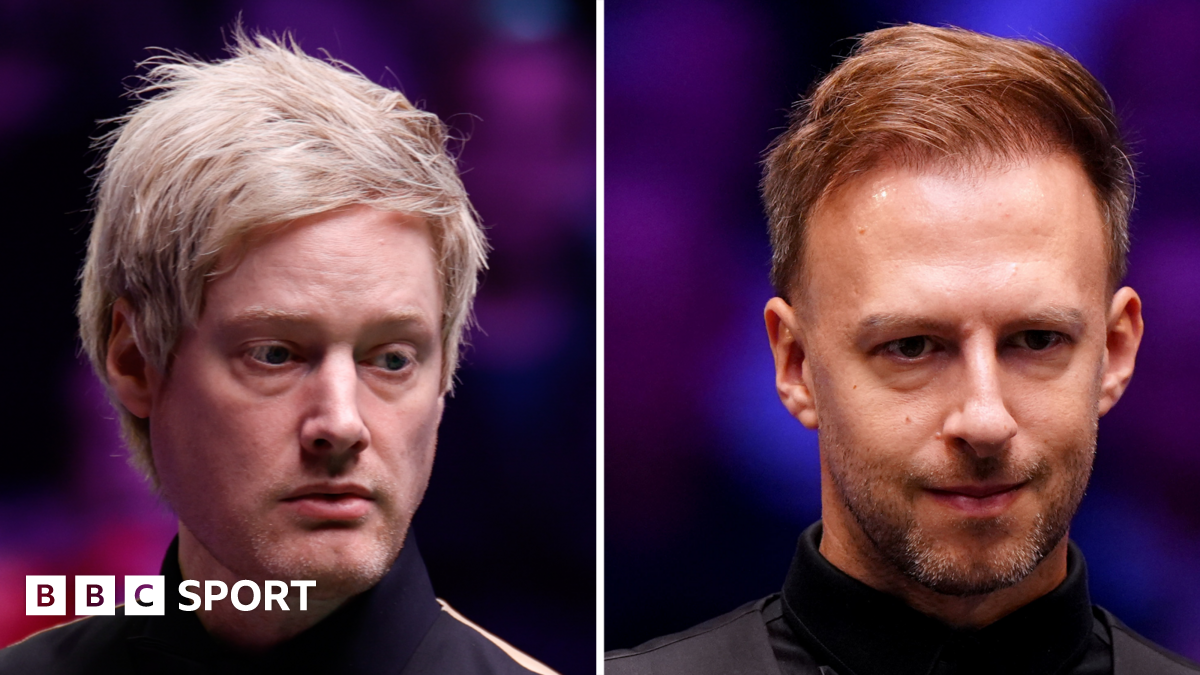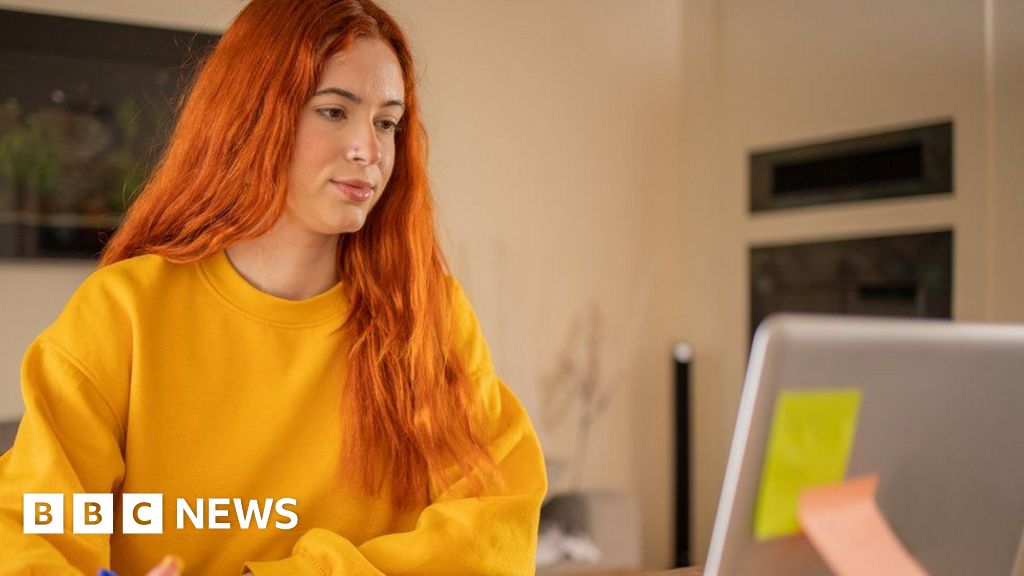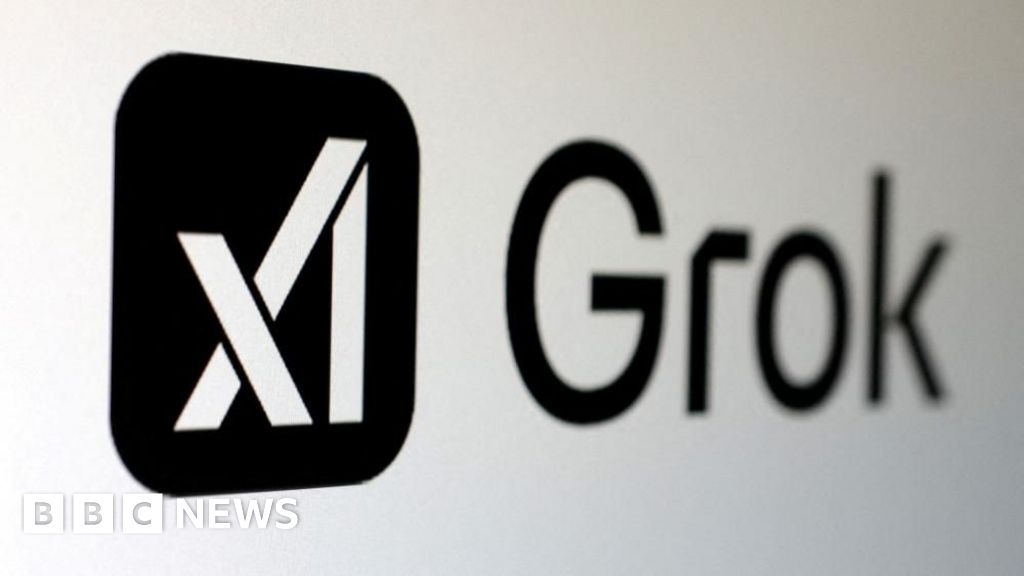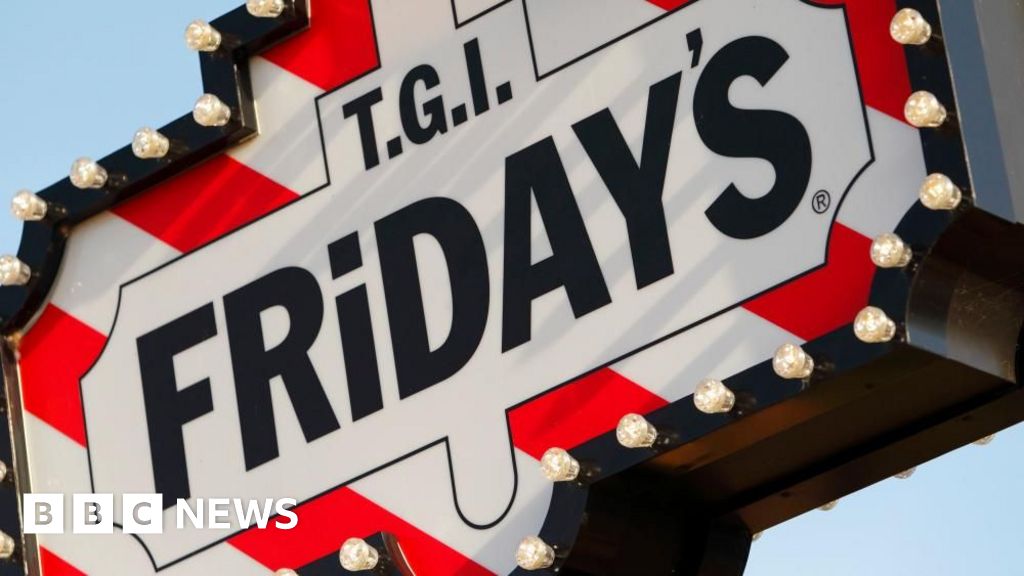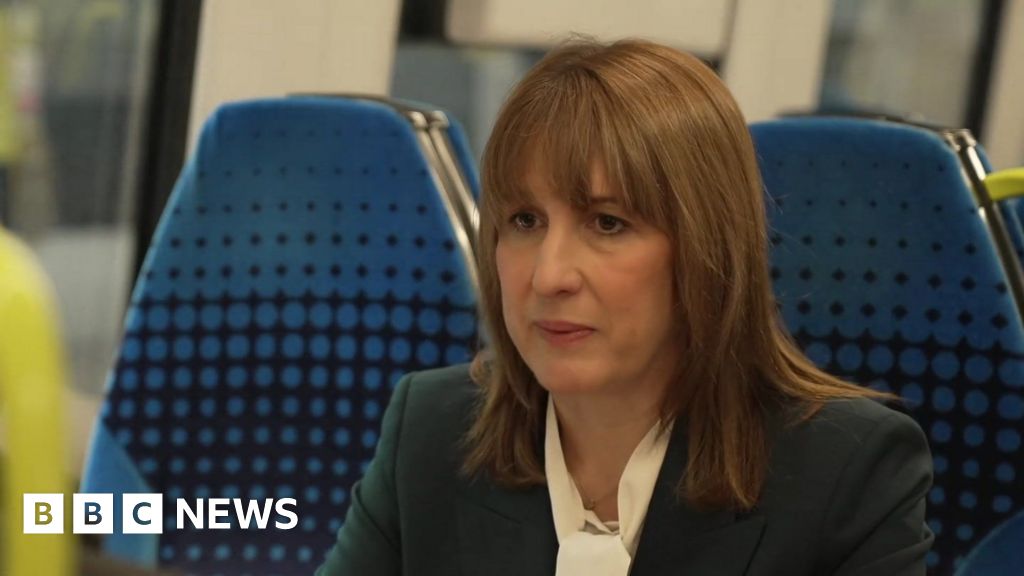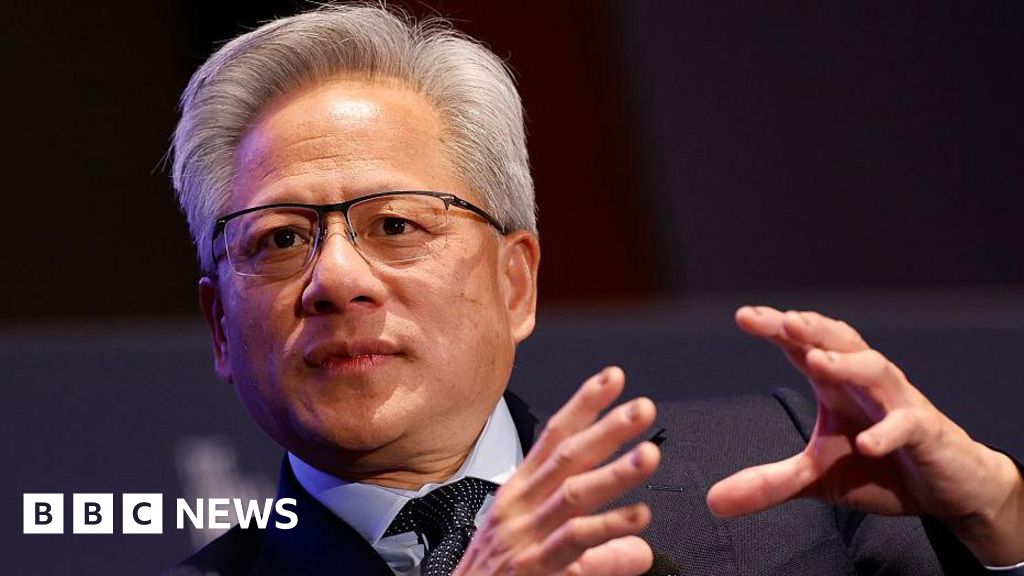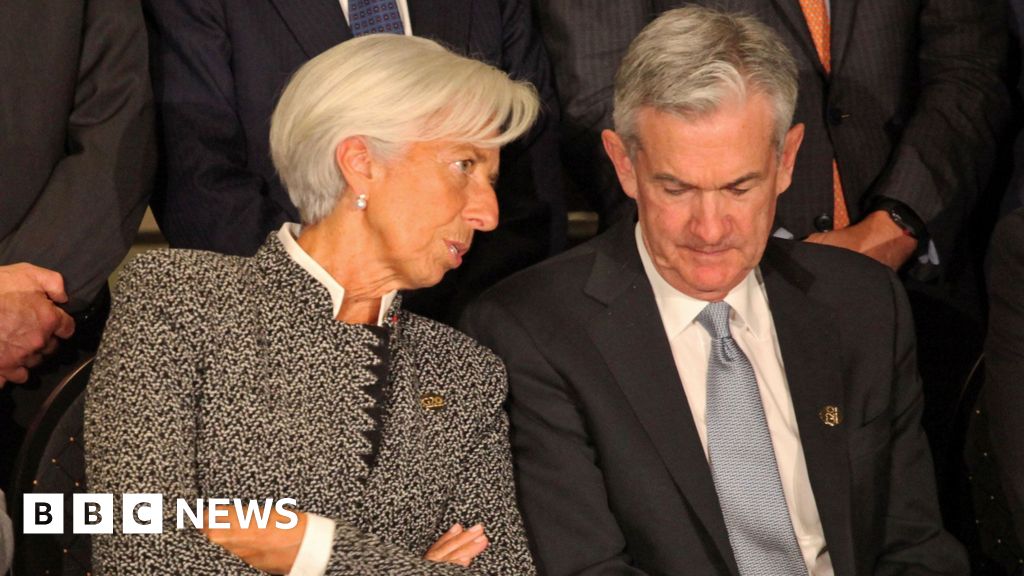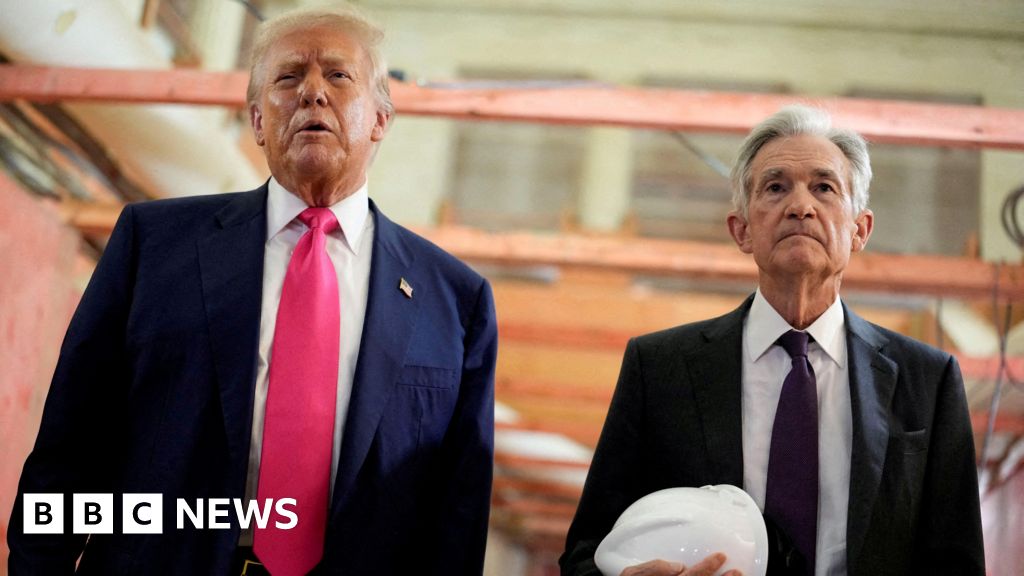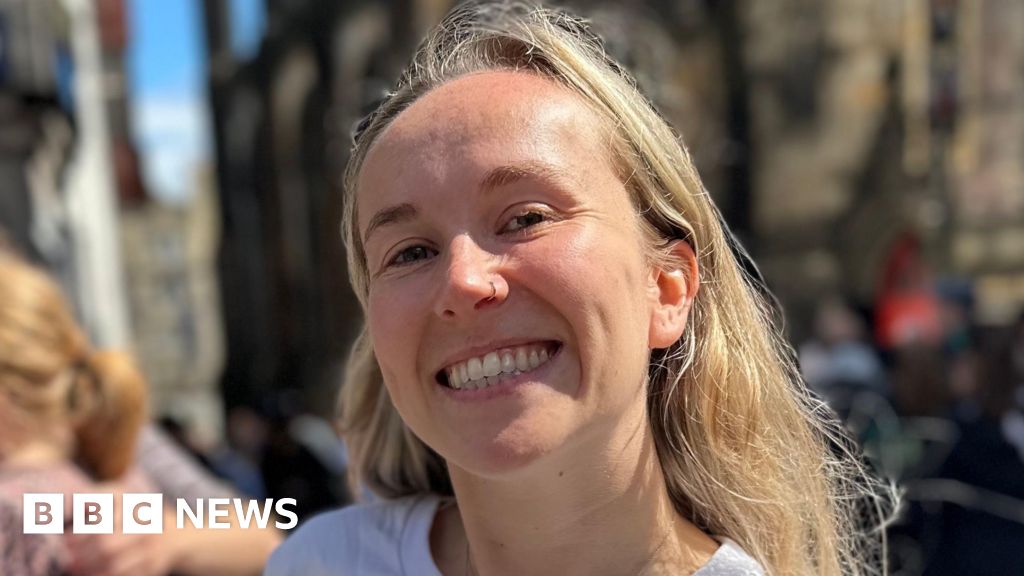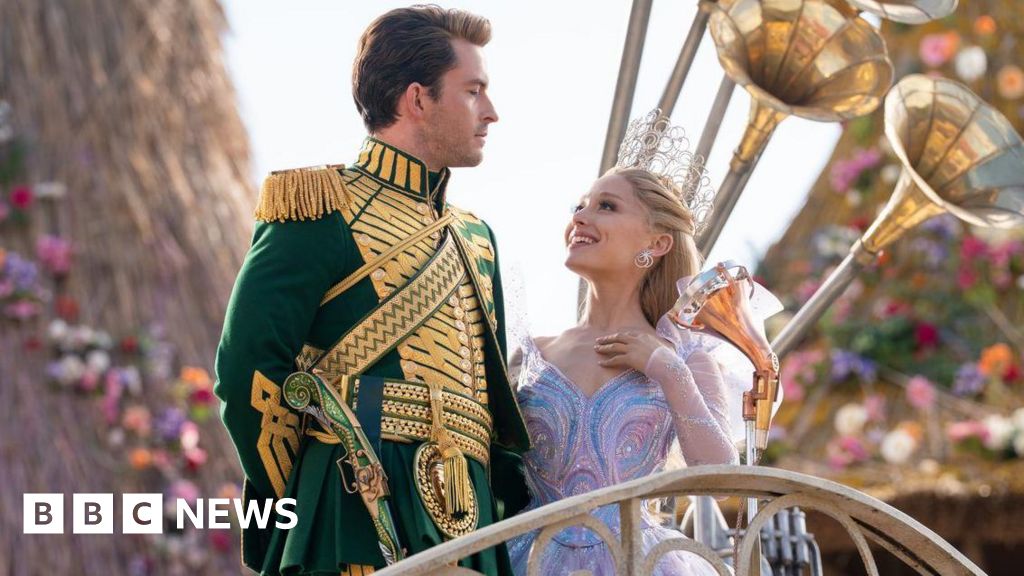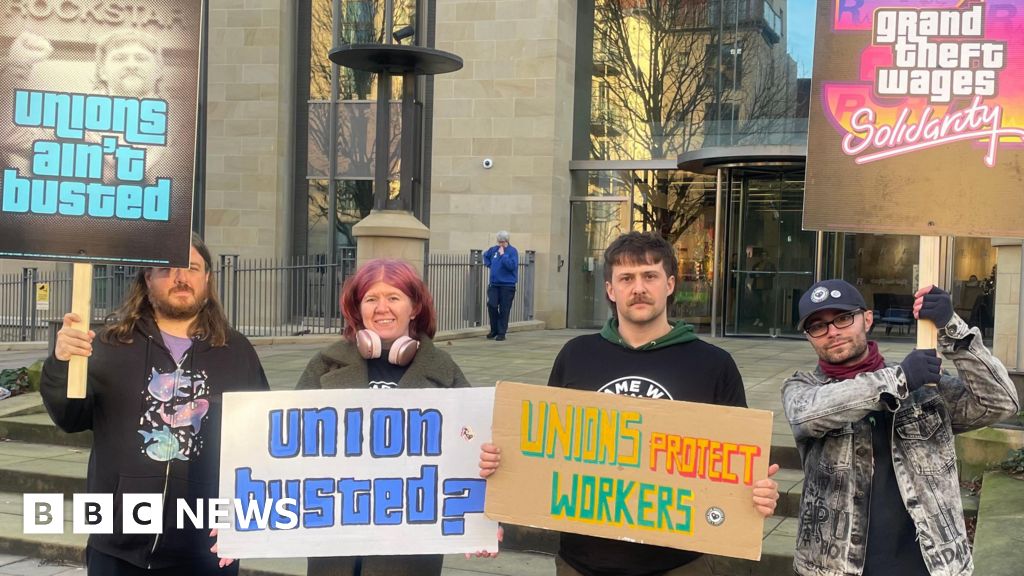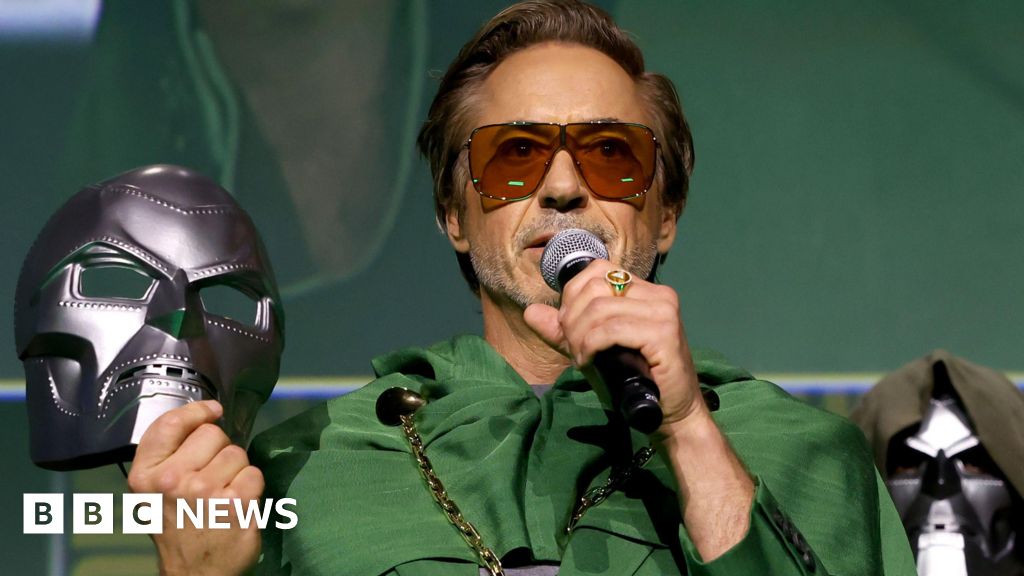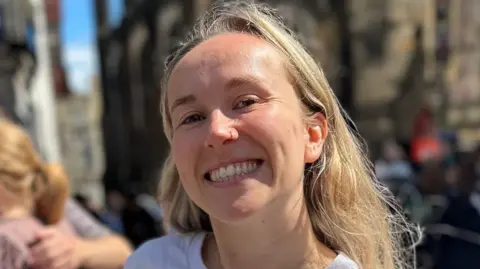 BBC
BBCIf you fluff a joke in a TikTok, you’ve always got the option of deleting the video. Not so much live on stage at the world’s biggest performance arts festival.
But for a group of acts who’ve gained a large following on the app, that hasn’t put them off taking their sets offline at the Edinburgh Festival Fringe.
“All that time posting on TikTok helped me build my confidence,” says Courtney Buchner.
“Having that online platform where I could try things out and feel a little bit safer,” she tells BBC Newsbeat.
TikTok bosses noticed many people like Courtney trying to take their comedy from feeds to theatres this year and the platform has been announced as a sponsor of the festival.
Courtney has had more than a million likes on her TikTok videos, which often include sketches around women’s football.
She didn’t expect to be at this year’s festival but when a slot opened up, she threw herself in.
“Now I’m ready to say to an audience: ‘I’m opening this up to you and to live reactions’.
“Rather than having a reaction in your room, and I don’t get to see it, and you might not like it, and just swipe by,” she says.
Although Courtney says it’s not something she’s personally experienced, she knows there can be some snobbery about performers who’ve cut their teeth online rather than honing their craft in the “real world”.
“There’s that feeling of insecurity that you do have something to prove, that you can move your audience from being online to being fresh and alive in a theatre space,” she says.
“You do hear things about, ‘They’re only getting X, Y and Z because of their following’.
“My answer to that is to get that following took time, patience and talent.”
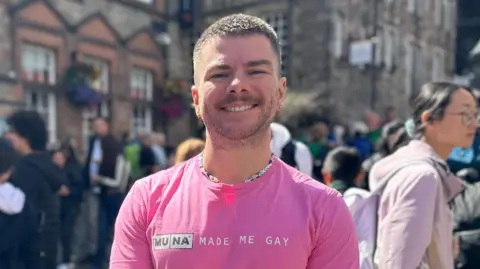
Chris Hall says his online fans have been surprised by what he’s put on for Fringe so far.
“Some people come and they go, ‘That’s not what we were expecting at all but I really liked it’.
“Hopefully what people like from the [online] content, they see carried through to the stand-up.”
Chris started sharing on TikTok during the coronavirus lockdown and, like Courtney, he says it helped build his confidence, and build a following of almost 600,000.
His videos where he and his sister Elizabeth pretend to be backing singers have earned him thousands of likes and caught the eye of some of the biggest names in the entertainment industry.
“Shania [Twain] was our biggest,” Chris tells Newsbeat.
“That really got the ball – not even the ball rolling. It got the ball catapulted into the stratosphere.”
But he’s left the backing singers skit at home, preferring to offer audiences something different.
“It’s so nice to meet people in real life,” he says, comparing performing on stage to performing online.
“To get that in-person, live feedback.”
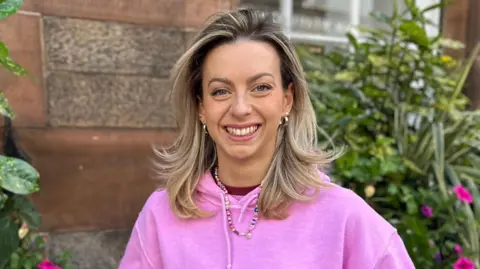
Abi Clarke’s journey has been the opposite way round to Chris and Courtney, starting her career in stand-up offline and then moving on to social media.
“I didn’t want to be a social media person,” she says, but adds: “You have to be now.”
Abi now has almost a million followers on TikTok and more than 27 million likes.
Since becoming popular online, she still has to figure out how to translate her online comedy to a real life audience.
“It’s scary. I feel like I’m introducing my school friends to my work friends.
“They’re different forms of performance and they’re different vibes,” she says. “But it’s still me.”
With so many opportunities to go viral, Abi feels using social media to launch a more sustainable live career is a “natural progression” for comedians.
“I think people just want the live genre to be respected and people not to think that they can just come and do a show on the cuff,” she says.
For those thinking of making the leap, she says there are some key differences to overcome when adapting your work.
On social media, “you can be much more niche”, Abi says, and chances are people with similar interests will find you.
But at somewhere like the Fringe, “you don’t know who’s going to come through that door… you have to make sure it’s funny for – hopefully – anyone”.
“You also have to keep their attention for an hour,” she adds, compared to short skits online.
It’s harder “but so much more fun”.
“Social media gets lonely… it can get you down.
“Nothing compares to people laughing live and people being in a room.
“A laugh emoji is never gonna match up to that.”







